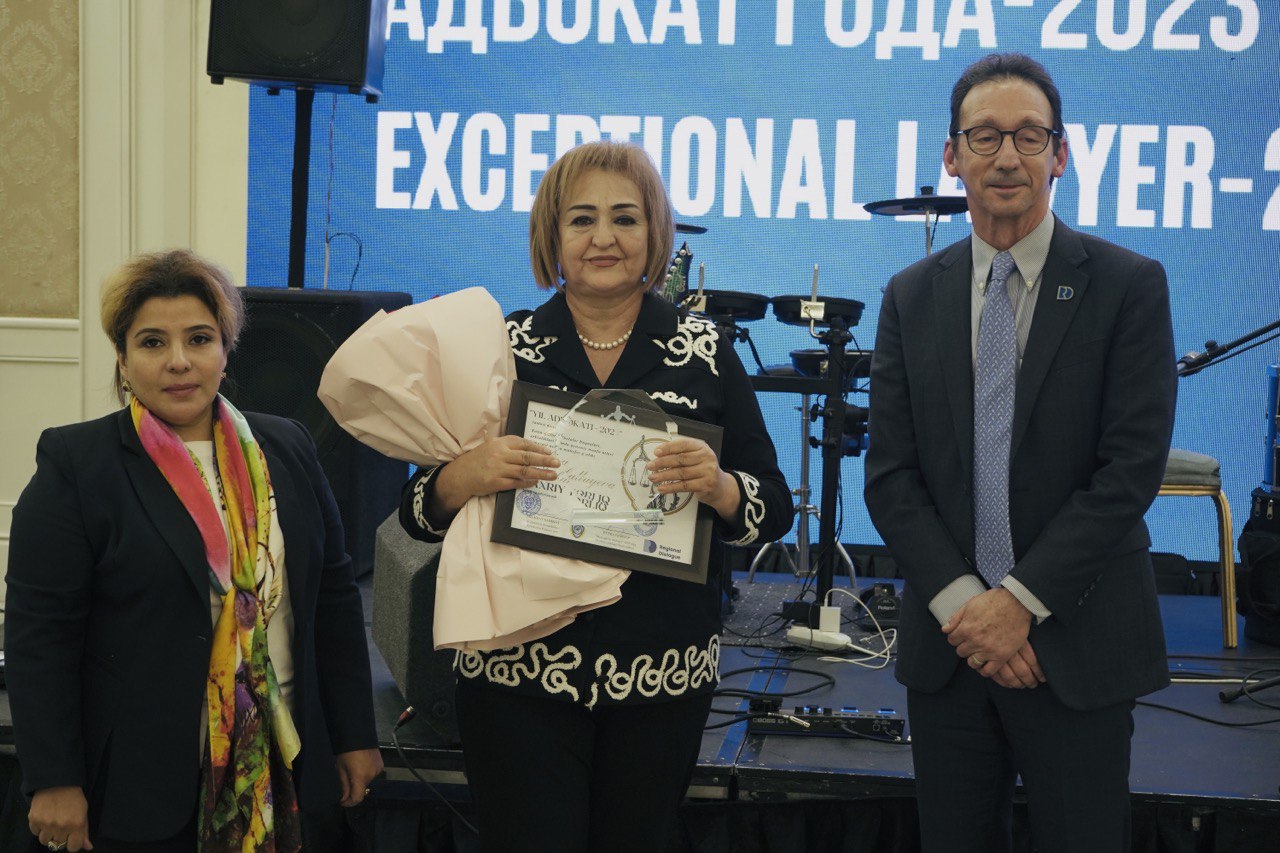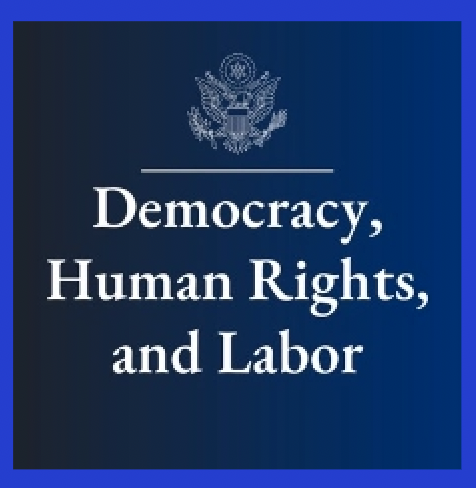Gaybullaeva Dilfuza Kambarovna has been practicing law since 1995. A master of her profession, she is actively involved in public affairs. She participates in the free restoration of violated rights of women and low-income populations and is actively involved in legal defense.

You became the winner of the Exceptional Lawyer competition and received the Award for Defense of the rights of women and children against violence. Why do you think you were chosen as the winner?
If I reflect on the past few years, 2023 was a successful year for me. I became the winner of the Exceptional Lawyer competition, announced by Regional Dialogue and the Chamber of Lawyers of the Republic of Uzbekistan, in the nomination "For protection of rights, freedoms and legitimate interests of women, girls and children". I can say that I have achieved this by effectively defending in courts and other legal institutions the violated rights of women, girls and children living in the territory of our republic
Why did you decide to become a lawyer? Why do you do your job, what motivates you?
I chose the profession of a lawyer when I was in the 3rd grade. In 1995, I graduated from the Law Faculty of the Tashkent State Law University in absentia, came to the Namangan Regional Chamber of Advocates as an intern and then became a lawyer. Since I worked as a court session secretary in the former Yangikurgan district court, I've felt that I could help more people with my advocacy because the secretary of the court session comes to trully understands the profession of a lawyer. It is a great joy to see how much you can help or gain from each person you advocate for. Seeing tears of joy in the eyes of someone whose rights have been restored and hearing their gratitude will inspire you to work even harder.
What are you most proud of? What do you consider to be the most important thing you do as part of your law practice?
Sometimes women or men facing financial hardship come to see me and ask for my help with their fees due to their financial situation. And sometimes I help them for free. I feel proud of what I have achieved. Especially when our supervisor thanked me for it, I was over the moon. I try to treat every job as important work with a soul.
How do you assess the development and state of the legal profession over the past few years?
The leader of our country, His Excellency President Sh. M. Mirziyoyev, effectively works on the role of lawyers in society. This is evidenced by the fact that in the Constitution of our General Council there is a separate chapter on Lawyers' activity, and also by the achievements of lawyers, first of all, by the increase in the number of acquittals.
What do you think are the main problems facing the national legal profession today? And what are the ways to solve them?
In addition to the progress made in this area, there are still some challenges left. It would be helpful if the teacher-student tradition was legally regulated. I believe if a commission was to be established, it would be necessary to examine the initial work of lawyers who are first starting their legal careers. Of course, it is about practical assistance. In addition, I sincerely hope that a Lawyers' Day will be instated as a holiday in Uzbekistan as there are holidays in every industry.
What is the most difficult part of your job?
In my work it is difficult for citizens to turn to a lawyer after the deadline for restoration of violated rights has passed. If the application is made in accordance with the law, there are no difficulties.
How do you think your work impacts society?
Of course, I rate this as positive. I think that all people have heard or read on the Internet the opinion of religious scholars about lawyers. In the future, I will try to use all my strength and knowledge to protect the rights, freedoms and legitimate interests of citizens, women, girls and children. I wish all my colleagues success in their honorable and hard work.
What advice could you give to our readers – law students interested in becoming a lawyer?
The Law on Advocacy has also been amended to allow young people to work in this field. This means that legal experience is not required. Two students of the Law Faculty of Namangan State University, who are interested in my profession, are doing an internship in the office of DIL-AFZAL FEMIDA, where I currently work. I am impressed by their eloquence, their thirst for knowledge, their breadth of vision. There is no doubt that young people are our future. I hope that young people will be interested in the legal profession. I believe they will not regret it.





